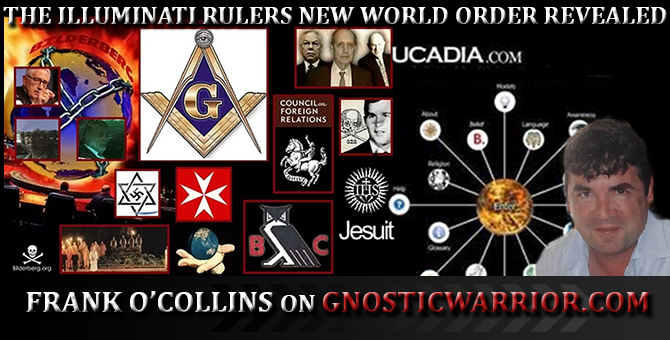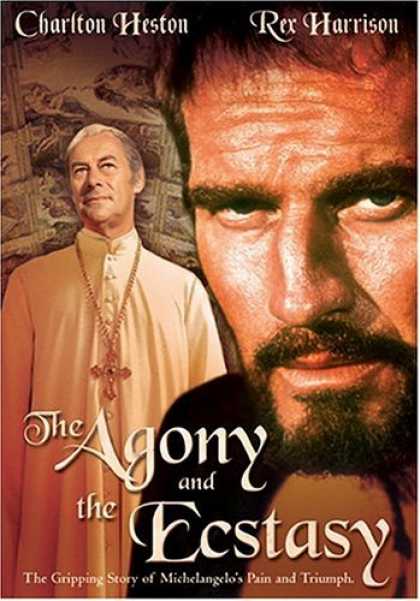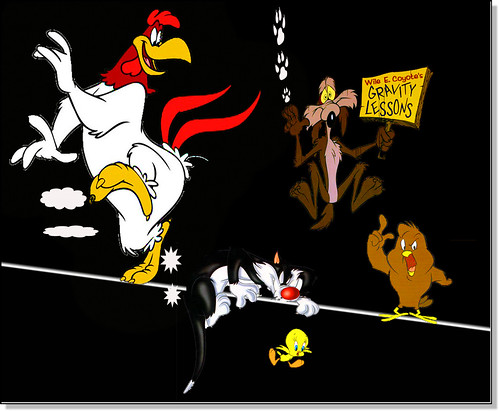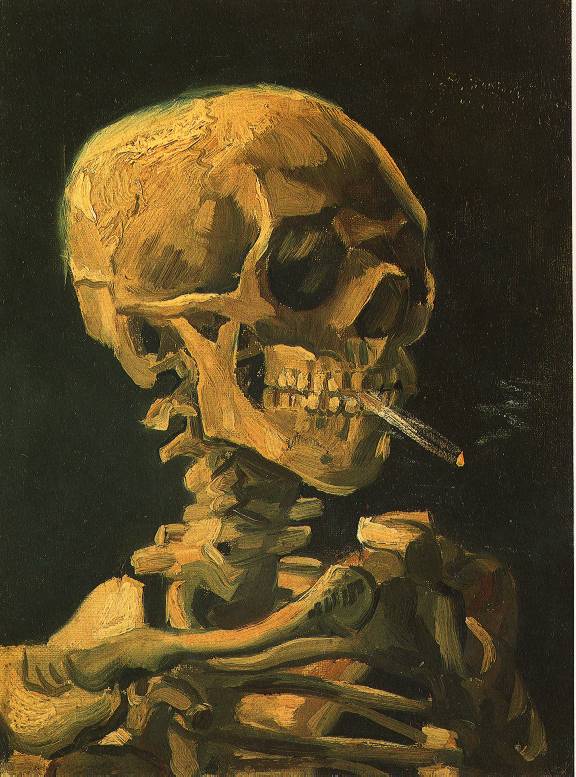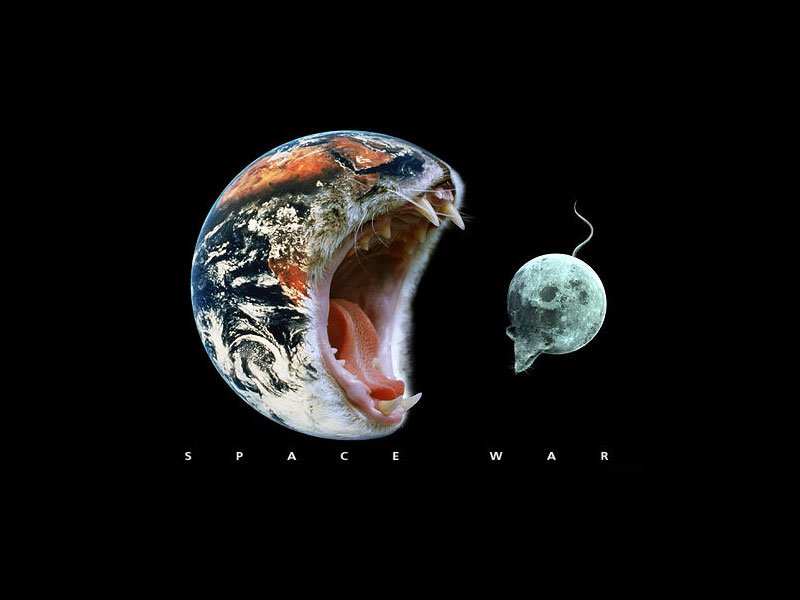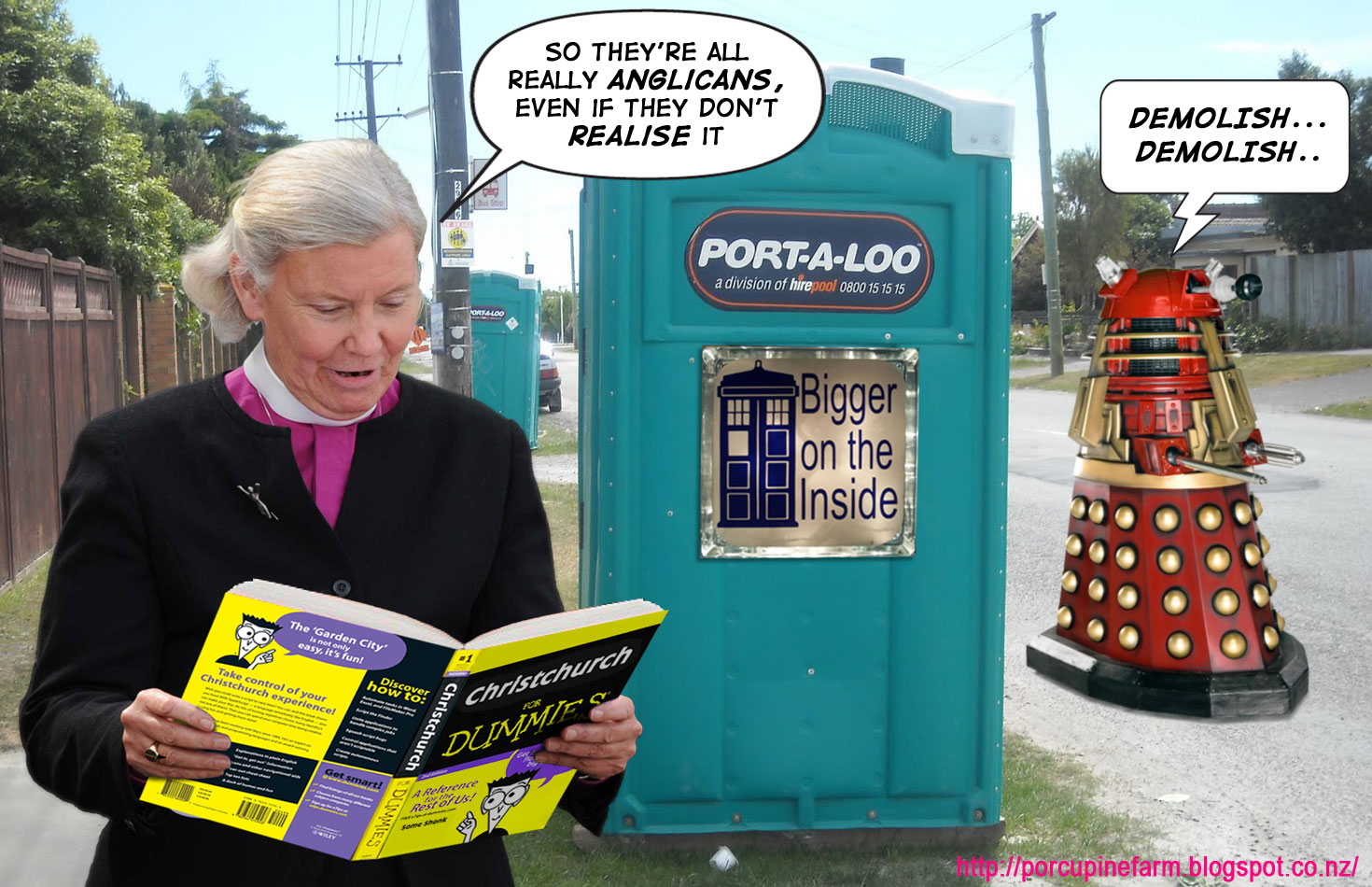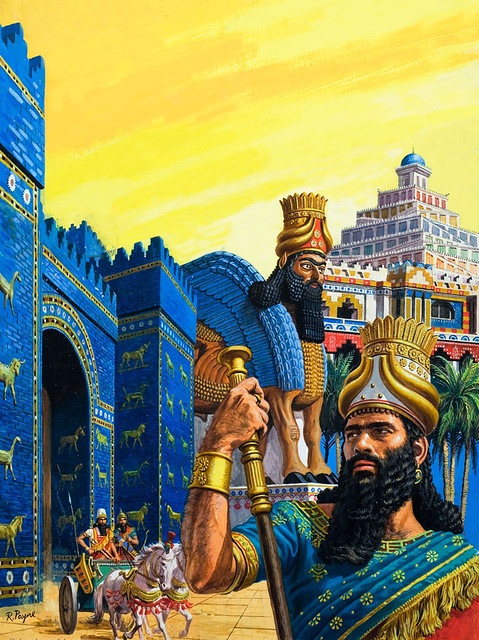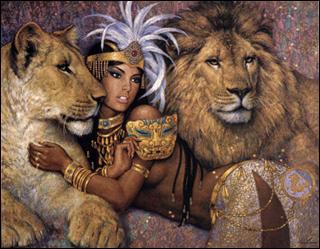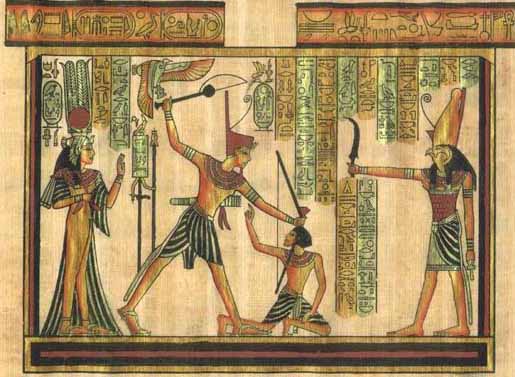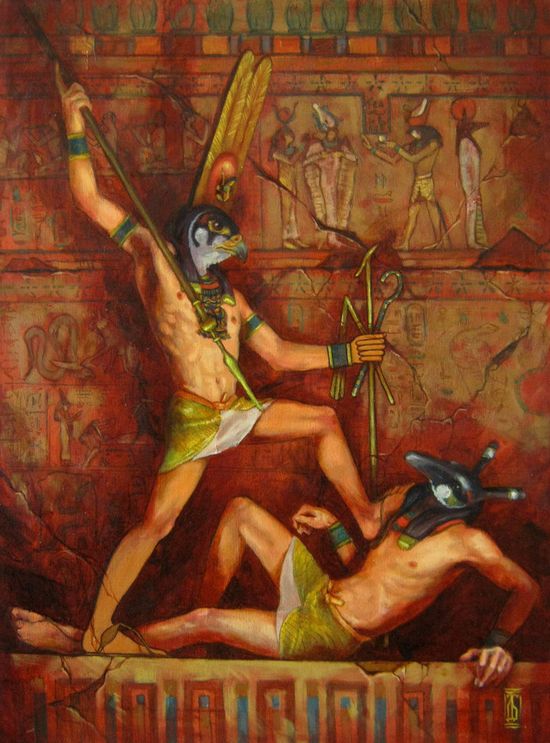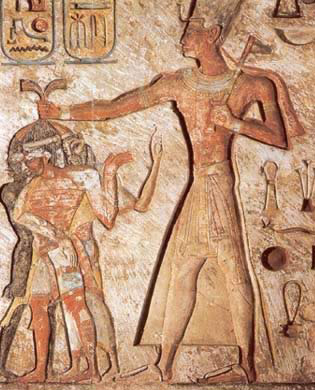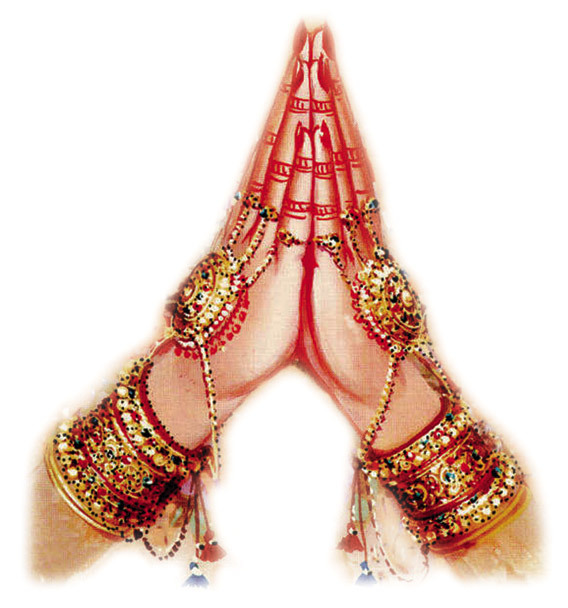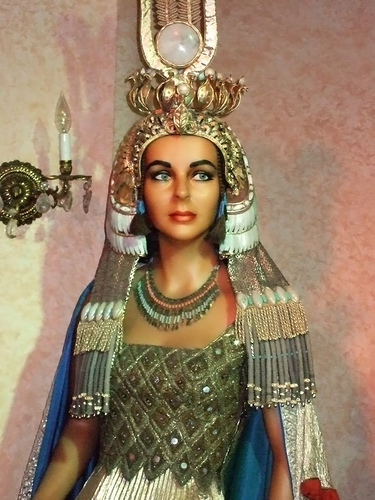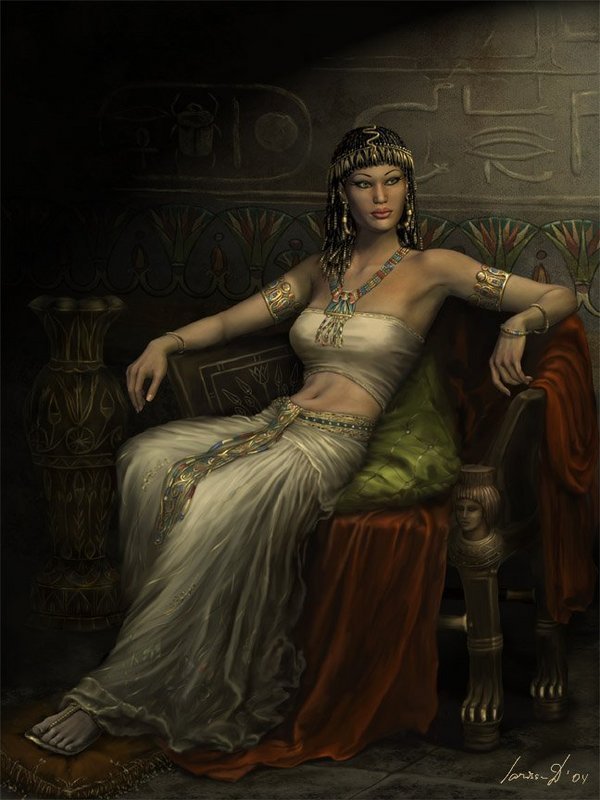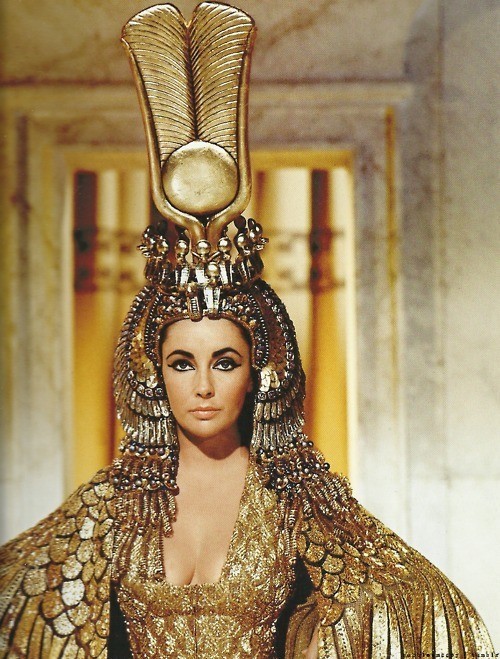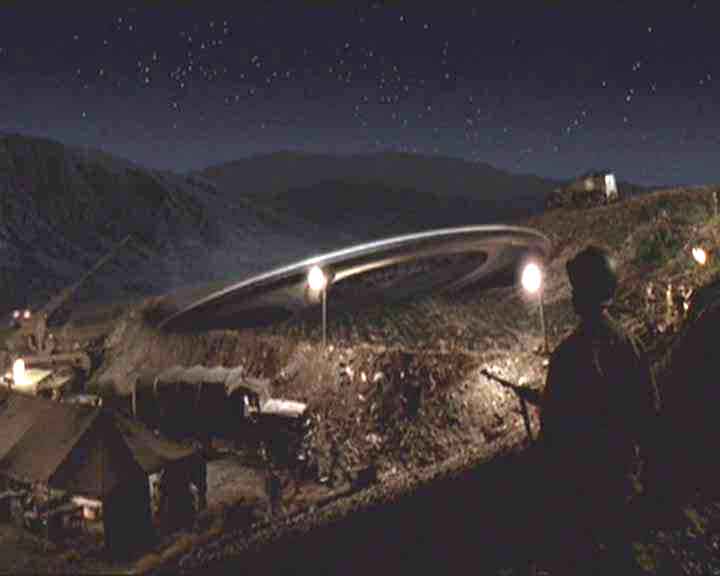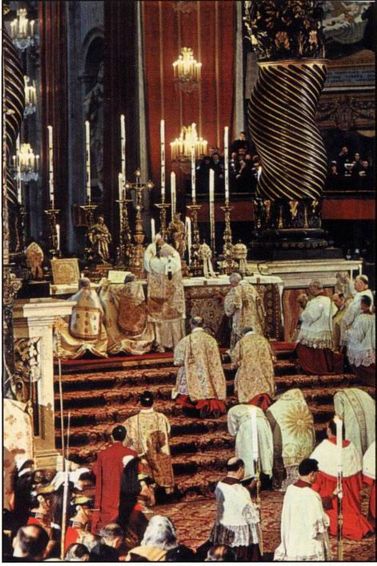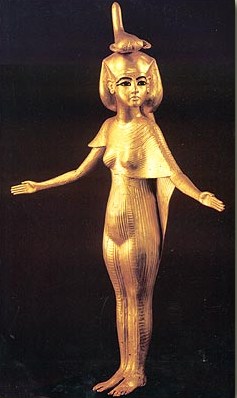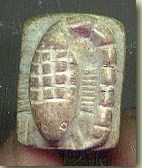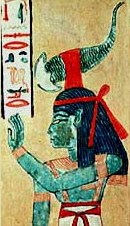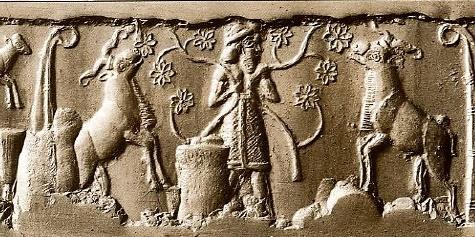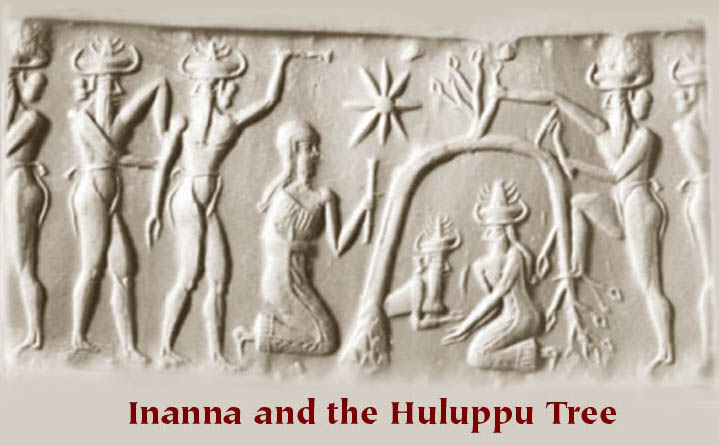Thank-you magamud. I don't think that even the True-Believers of what I'm currently posting, really 'get-it'. https://www.youtube.com/watch?v=75eVSudoqpg I hate to say it, but I tend to think that the Jesuits, Gizeh-Intelligence, and the Ancient-Egyptian-Deity 'get-it' -- but that 'it' is in conflict with their agendas. I know that I just 'get' little bits and pieces. I once talked to a relative of a very-famous Hollywood director about the possibility of a very high-quality 'Life of Christ' motion-picture, based upon a lot of what I'm currently posting. Obviously, nothing ever came of it -- but I'd still like to see some very high-quality Political and Theological Science-Fiction, based upon the TOTALITY of this thread -- with a helluva lot of input from scholars, insiders, intelligence-agencies, writers, editors, et al -- if you know what I mean. I'm almost to the point of recommending the Life of Christ by Fulton Sheen and the 1928 Book of Common Prayer -- because I agree with a lot of it -- find it mentally and spiritually beneficial -- and because it constitutes Minimalist-Traditionalist Ecumenical Theology and Liturgy -- without a lot of BS and Baggage. I think we are a very sophisticated and very primitive species -- on the brink of extinction. I feel as if 'Saving the World and Humanity' involves intense conflict with Divinity and Humanity -- but please don't take it personally. Anyway, I'm going to finish posting this book -- and then I'm going to take a break -- because I am at the breaking-point -- or perhaps I'm already broken -- and on the brink of falling apart. BTW -- I think someone MIGHT'VE tried to pry-open a window on my car. The window has been stuck in the closed-position for months -- and this morning it was partially open -- but then I'm just a completely paranoid and ignorant fool. What was it that Jesus said about calling people 'fools'??magamud wrote:I tend to think that if real bible believers would have held their integrity when war was trying to use it for justification, that they would have died long long ago. Kind of like the Halkin council www.youtube.com/watch?v=I9xN0Ol5vZQ
Difficult times when the power of God has been used like a cheap whore for millennia. Im not sure if our species knows the difference. This might be why Jesus mentions, show me the stone the builders rejected. This implies truth will come from where no one expects and more support to the saying, Jesus comes like a thief in the Night.
Be well and prosper.
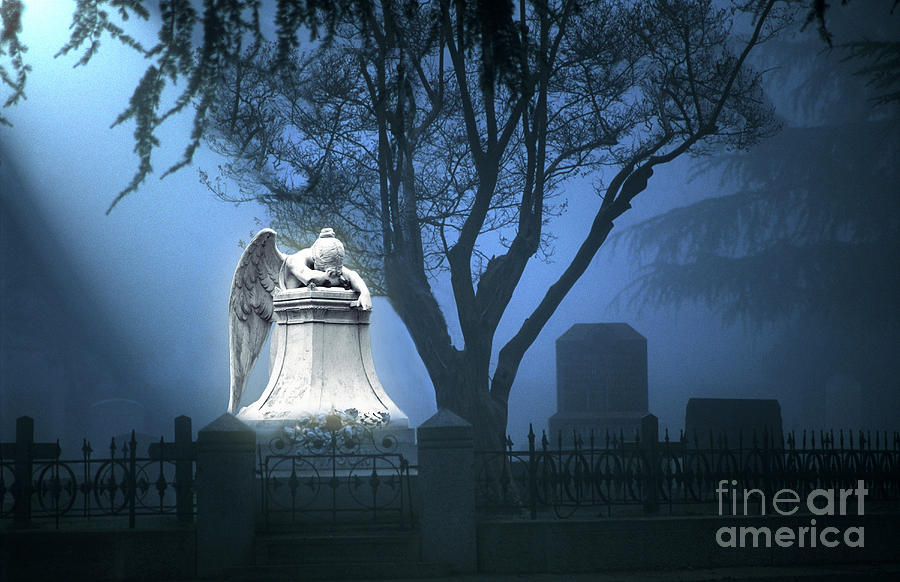
CHAPTER 16 -- The Pilgrim Fathers
The English Reformers, while renouncing the doctrines of Romanism, had retained many of its forms. Thus though the authority and the creed of Rome were rejected, not a few of her customs and ceremonies were incorporated into the worship of the Church of England. It was claimed that these things were not matters of conscience; that though they were not commanded in Scripture, and hence were nonessential, yet not being forbidden, they were not intrinsically evil. Their observance tended to narrow the gulf which separated the reformed churches from Rome, and it was urged that they would promote the acceptance of the Protestant faith by Romanists.
To the conservative and compromising, these arguments seemed conclusive. But there was another class that did not so judge. The fact that these customs "tended to bridge over the chasm between Rome and the Reformation" (Martyn, volume 5, page 22), was in their view a conclusive argument against retaining them. They looked upon them as badges of the slavery from which they had been delivered and to which they had no disposition to return. They reasoned that God has in His word established the regulations governing His worship, and that men are not at liberty to add to these or to detract from them. The very beginning of the great apostasy was in seeking to supplement the authority of God by that of the church. Rome began by enjoining what God had not forbidden, and she ended by forbidding what He had explicitly enjoined.
Many earnestly desired to return to the purity and simplicity which characterized the primitive church. They regarded many of the established customs of the English Church as monuments of idolatry, and they could not in conscience unite in her worship. But the church, being supported by the civil authority, would permit no dissent from her forms. Attendance upon her service was required by law, and unauthorized assemblies for religious worship were prohibited, under penalty of imprisonment, exile, and death.
At the opening of the seventeenth century the monarch who had just ascended the throne of England declared his determination to make the Puritans "conform, or . . . harry them out of the land, or else worse."--George Bancroft, History of the United States of America, pt. 1, ch. 12, par. 6. Hunted, persecuted, and imprisoned, they could discern in the future no promise of better days, and many yielded to the conviction that for such as would serve God according to the dictates of their conscience, "England was ceasing forever to be a habitable place."--J. G. Palfrey, History of New England, ch. 3, par. 43. Some at last determined to seek refuge in Holland. Difficulties, losses, and imprisonment were encountered. Their purposes were thwarted, and they were betrayed into the hands of their enemies. But steadfast perseverance finally conquered, and they found shelter on the friendly shores of the Dutch Republic.
In their flight they had left their houses, their goods, and their means of livelihood. They were strangers in a strange land, among a people of different language and customs. They were forced to resort to new and untried occupations to earn their bread. Middle-aged men, who had spent their lives in tilling the soil, had now to learn mechanical trades. But they cheerfully accepted the situation and lost no time in idleness or repining. Though often pinched with poverty, they thanked God for the blessings which were still granted them and found their joy in unmolested spiritual communion. "They knew they were pilgrims, and looked not much on those things, but lifted up their eyes to heaven, their dearest country, and quieted their spirits."--Bancroft, pt. 1, ch. 12, par. 15.
In the midst of exile and hardship their love and faith waxed strong. They trusted the Lord's promises, and He did not fail them in time of need. His angels were by their side, to encourage and support them. And when God's hand seemed pointing them across the sea, to a land where they might found for themselves a state, and leave to their children the precious heritage of religious liberty, they went forward, without shrinking, in the path of providence.
God had permitted trials to come upon His people to prepare them for the accomplishment of His gracious purpose toward them. The church had been brought low, that she might be exalted. God was about to display His power in her behalf, to give to the world another evidence that He will not forsake those who trust in Him. He had overruled events to cause the wrath of Satan and the plots of evil men to advance His glory and to bring His people to a place of security. Persecution and exile were opening the way to freedom.
When first constrained to separate from the English Church, the Puritans had joined themselves together by a solemn covenant, as the Lord's free people, "to walk together in all His ways made known or to be made known to them." --J. Brown, The Pilgrim Fathers, page 74. Here was the true spirit of reform, the vital principle of Protestantism. It was with this purpose that the Pilgrims departed from Holland to find a home in the New World. John Robinson, their pastor, who was providentially prevented from accompanying them, in his farewell address to the exiles said:
"Brethren, we are now erelong to part asunder, and the Lord knoweth whether I shall live ever to see your faces more. But whether the Lord hath appointed it or not, I charge you before God and His blessed angels to follow me no farther than I have followed Christ. If God should reveal anything to you by any other instrument of His, be as ready to receive it as ever you were to receive any truth of my ministry; for I am very confident the Lord hath more truth and light yet to break forth out of His holy word."--Martyn, vol. 5, p. 70.
"For my part, I cannot sufficiently bewail the condition of the reformed churches, who are come to a period in religion, and will go at present no farther than the instruments of their reformation. The Lutherans cannot be drawn to go beyond what Luther saw; . . . and the Calvinists, you see, stick fast where they were left by that great man of God, who yet saw not all things. This is a misery much to be lamented; for though they were burning and shining lights in their time, yet they penetrated not into the whole counsel of God, but were they now living, would be as willing to embrace further light as that which they first received."--D. Neal, History of the Puritans, vol. 1, p. 269.
"Remember your church covenant, in which you have agreed to walk in all the ways of the Lord, made or to be made known unto you. Remember your promise and covenant with God and with one another, to receive whatever light and truth shall be made known to you from His written word; but withal, take heed, I beseech you, what you receive for truth, and compare it and weigh it with other scriptures of truth before you accept it; for it is not possible the Christian world should come so lately out of such thick antichristian darkness, and that full perfection of knowledge should break forth at once."--Martyn, vol. 5, pp. 70, 71.
It was the desire for liberty of conscience that inspired the Pilgrims to brave the perils of the long journey across the sea, to endure the hardships and dangers of the wilderness, and with God's blessing to lay, on the shores of America, the foundation of a mighty nation. Yet honest and God-fearing as they were, the Pilgrims did not yet comprehend the great principle of religious liberty. The freedom which they sacrificed so much to secure for themselves, they were not equally ready to grant to others. "Very few, even of the foremost thinkers and moralists of the seventeenth century, had any just conception of that grand principle, the outgrowth of the New Testament, which acknowledges God as the sole judge of human faith."--Ibid., vol. 5, p. 297. The doctrine that God has committed to the church the right to control the conscience, and to define and punish heresy, is one of the most deeply rooted of papal errors. While the Reformers rejected the creed of Rome, they were not entirely free from her spirit of intolerance. The dense darkness in which, through the long ages of her rule, popery had enveloped all Christendom, had not even yet been wholly dissipated. Said one of the leading ministers in the colony of Massachusetts Bay: "It was toleration that made the world antichristian; and the church never took harm by the punishment of heretics."--Ibid., vol. 5, p. 335. The regulation was adopted by the colonists that only church members should have a voice in the civil government. A kind of state church was formed, all the people being required to contribute to the support of the clergy, and the magistrates being authorized to suppress heresy. Thus the secular power was in the hands of the church. It was not long before these measures led to the inevitable result --persecution.
Eleven years after the planting of the first colony, Roger Williams came to the New World. Like the early Pilgrims he came to enjoy religious freedom; but, unlike them, he saw --what so few in his time had yet seen--that this freedom was the inalienable right of all, whatever might be their creed. He was an earnest seeker for truth, with Robinson holding it impossible that all the light from God's word had yet been received. Williams "was the first person in modern Christendom to establish civil government on the doctrine of the liberty of conscience, the equality of opinions before the law."--Bancroft, pt. 1, ch. 15, par. 16. He declared it to be the duty of the magistrate to restrain crime, but never to control the conscience. "The public or the magistrates may decide," he said, "what is due from man to man; but when they attempt to prescribe a man's duties to God, they are out of place, and there can be no safety; for it is clear that if the magistrates has the power, he may decree one set of opinions or beliefs today and another tomorrow; as has been done in England by different kings and queens, and by different popes and councils in the Roman Church; so that belief would become a heap of confusion."--Martyn, vol. 5, p. 340.
Attendance at the services of the established church was required under a penalty of fine or imprisonment. "Williams reprobated the law; the worst statute in the English code was that which did but enforce attendance upon the parish church. To compel men to unite with those of a different creed, he regarded as an open violation of their natural rights; to drag to public worship the irreligious and the unwilling, seemed only like requiring hypocrisy. . . . 'No one should be bound to worship, or,' he added, 'to maintain a worship, against his own consent.' 'What!' exclaimed his antagonists, amazed at his tenets, 'is not the laborer worthy of his hire?' 'Yes,' replied he, 'from them that hire him.'"-- Bancroft, pt. 1, ch. 15, par. 2.
Roger Williams was respected and beloved as a faithful minister, a man of rare gifts, of unbending integrity and true benevolence; yet his steadfast denial of the right of civil magistrates to authority over the church, and his demand for religious liberty, could not be tolerated. The application of this new doctrine, it was urged, would "subvert the fundamental state and government of the country."--Ibid., pt. 1, ch. 15, par. 10. He was sentenced to banishment from the colonies, and, finally, to avoid arrest, he was forced to flee, amid the cold and storms of winter, into the unbroken forest.
"For fourteen weeks," he says, "I was sorely tossed in a bitter season, not knowing what bread or bed did mean." But "the ravens fed me in the wilderness," and a hollow tree often served him for a shelter.--Martyn, vol. 5, pp. 349, 350. Thus he continued his painful flight through the snow and the trackless forest, until he found refuge with an Indian tribe whose confidence and affection he had won while endeavoring to teach them the truths of the gospel.
Making his way at last, after months of change and wandering, to the shores of Narragansett Bay, he there laid the foundation of the first state of modern times that in the fullest sense recognized the right of religious freedom. The fundamental principle of Roger Williams's colony was "that every man should have liberty to worship God according to the light of his own conscience."--Ibid., vol. 5, p. 354. His little state, Rhode Island, became the asylum of the oppressed, and it increased and prospered until its foundation principles--civil and religious liberty--became the cornerstones of the American Republic.
In that grand old document which our forefathers set forth as their bill of rights--the Declaration of Independence--they declared: "We hold these truths to be self-evident, that all men are created equal; that they are endowed by their Creator with certain unalienable rights; that among these are life, liberty, and the pursuit of happiness." And the Constitution guarantees, in the most explicit terms, the inviolability of conscience: "No religious test shall ever be required as a qualification to any office of public trust under the United States." "Congress shall make no law respecting an establishment of religion, or prohibiting the free exercise thereof."
"The framers of the Constitution recognized the eternal principle that man's relation with his God is above human legislation, and his rights of conscience inalienable. Reasoning was not necessary to establish this truth; we are conscious of it in our own bosoms. It is this consciousness which, in defiance of human laws, has sustained so many martyrs in tortures and flames. They felt that their duty to God was superior to human enactments, and that man could exercise no authority over their consciences. It is an inborn principle which nothing can eradicate."--Congressional documents (U.S.A.), serial No. 200, document No. 271.
As the tidings spread through the countries of Europe, of a land where every man might enjoy the fruit of his own labor and obey the convictions of his own conscience, thousands flocked to the shores of the New World. Colonies rapidly multiplied. "Massachusetts, by special law, offered free welcome and aid, at the public cost, to Christians of any nationality who might fly beyond the Atlantic 'to escape from wars or famine, or the oppression of their persecutors.' Thus the fugitive and the downtrodden were, by statute, made the guests of the commonwealth."--Martyn, vol. 5, p. 417. In twenty years from the first landing at Plymouth, as many thousand Pilgrims were settled in New England.
To secure the object which they sought, "they were content to earn a bare subsistence by a life of frugality and toil. They asked nothing from the soil but the reasonable returns of their own labor. No golden vision threw a deceitful halo around their path. . . . They were content with the slow but steady progress of their social polity. They patiently endured the privations of the wilderness, watering the tree of liberty with their tears, and with the sweat of their brow, till it took deep root in the land."
The Bible was held as the foundation of faith, the source of wisdom, and the charter of liberty. Its principles were diligently taught in the home, in the school, and in the church, and its fruits were manifest in thrift, intelligence, purity, and temperance. One might be for years a dweller in the Puritan settlement, "and not see a drunkard, or hear an oath, or meet a beggar."--Bancroft, pt. 1, ch. 19, par. 25. It was demonstrated that the principles of the Bible are the surest safeguards of national greatness. The feeble and isolated colonies grew to a confederation of powerful states, and the world marked with wonder the peace and prosperity of "a church without a pope, and a state without a king."
But continually increasing numbers were attracted to the shores of America, actuated by motives widely different from those of the first Pilgrims. Though the primitive faith and purity exerted a widespread and molding power, yet its influence became less and less as the numbers increased of those who sought only worldly advantage.
The regulation adopted by the early colonists, of permitting only members of the church to vote or to hold office in the civil government, led to most pernicious results. This measure had been accepted as a means of preserving the purity of the state, but it resulted in the corruption of the church. A profession of religion being the condition of suffrage and officeholding, many, actuated solely by motives of worldly policy, united with the church without a change of heart. Thus the churches came to consist, to a considerable extent, of unconverted persons; and even in the ministry were those who not only held errors of doctrine, but who were ignorant of the renewing power of the Holy Spirit. Thus again was demonstrated the evil results, so often witnessed in the history of the church from the days of Constantine to the present, of attempting to build up the church by the aid of the state, of appealing to the secular power in support of the gospel of Him who declared: "My kingdom is not of this world." John 18:36. The union of the church with the state, be the degree never so slight, while it may appear to bring the world nearer to the church, does in reality but bring the church nearer to the world.
The great principle so nobly advocated by Robinson and Roger Williams, that truth is progressive, that Christians should stand ready to accept all the light which may shine from God's holy word, was lost sight of by their descendants. The Protestant churches of America,--and those of Europe as well,--so highly favored in receiving the blessings of the Reformation, failed to press forward in the path of reform. Though a few faithful men arose, from time to time, to proclaim new truth and expose long-cherished error, the majority, like the Jews in Christ's day or the papists in the time of Luther, were content to believe as their fathers had believed and to live as they had lived. Therefore religion again degenerated into formalism; and errors and superstitions which would have been cast aside had the church continued to walk in the light of God's word, were retained and cherished. Thus the spirit inspired by the Reformation gradually died out, until there was almost as great need of reform in the Protestant churches as in the Roman Church in the time of Luther. There was the same worldliness and spiritual stupor, a similar reverence for the opinions of men, and substitution of human theories for the teachings of God's word.
The wide circulation of the Bible in the early part of the nineteenth century, and the great light thus shed upon the world, was not followed by a corresponding advance in knowledge of revealed truth, or in experimental religion. Satan could not, as in former ages, keep God's word from the people; it had been placed within the reach of all; but in order still to accomplish his object, he led many to value it but lightly. Men neglected to search the Scriptures, and thus they continued to accept false interpretations, and to cherish doctrines which had no foundation in the Bible.
Seeing the failure of his efforts to crush out the truth by persecution, Satan had again resorted to the plan of compromise which led to the great apostasy and the formation of the Church of Rome. He had induced Christians to ally themselves, not now with pagans, but with those who, by their devotion to the things of this world, had proved themselves to be as truly idolaters as were the worshipers of graven images. And the results of this union were no less pernicious now than in former ages; pride and extravagance were fostered under the guise of religion, and the churches became corrupted. Satan continued to pervert the doctrines of the Bible, and traditions that were to ruin millions were taking deep root. The church was upholding and defending these traditions, instead of contending for "the faith which was once delivered unto the saints." Thus were degraded the principles for which the Reformers had done and suffered so much.
CHAPTER 17 -- Heralds of the Morning
One of the most solemn and yet most glorious truths revealed in the Bible is that of Christ's second coming to complete the great work of redemption. To God's pilgrim people, so long left to sojourn in "the region and shadow of death," a precious, joy-inspiring hope is given in the promise of His appearing, who is "the resurrection and the life," to "bring home again His banished." The doctrine of the second advent is the very keynote of the Sacred Scriptures. From the day when the first pair turned their sorrowing steps from Eden, the children of faith have waited the coming of the Promised One to break the destroyer's power and bring them again to the lost Paradise. Holy men of old looked forward to the advent of the Messiah in glory, as the consummation of their hope. Enoch, only the seventh in descent from them that dwelt in Eden, he who for three centuries on earth walked with his God, was permitted to behold from afar the coming of the Deliverer. "Behold," he declared, "the Lord cometh with ten thousands of His saints, to execute judgment upon all." Jude 14, 15. The patriarch Job in the night of his affliction exclaimed with unshaken trust: "I know that my Redeemer liveth, and that He shall stand at the latter day upon the earth: . . . in my flesh shall I see God: whom I shall see for myself, and mine eyes shall behold, and not another." Job 19:25-27.
The coming of Christ to usher in the reign of righteousness has inspired the most sublime and impassioned utterances of the sacred writers. The poets and prophets of the Bible have dwelt upon it in words glowing with celestial fire. The psalmist sang of the power and majesty of Israel's King: "Out of Zion, the perfection of beauty, God hath shined. Our God shall come, and shall not keep silence. . . . He shall call to the heavens from above, and to the earth, that He may judge His people." Psalm 50:2-4. "Let the heavens rejoice, and let the earth be glad . . . before the Lord: for He cometh, for He cometh to judge the earth: He shall judge the world with righteousness, and the people with His truth." Psalm 96:11-13.
Said the prophet Isaiah: "Awake and sing, ye that dwell in dust: for thy dew is as the dew of herbs, and the earth shall cast out the dead." "Thy dead men shall live, together with my dead body shall they arise." "He will swallow up death in victory; and the Lord God will wipe away tears from off all faces; and the rebuke of His people shall He take away from off all the earth: for the Lord hath spoken it. And it shall be said in that day, Lo, this is our God; we have waited for Him, and He will save us: this is the Lord; we have waited for Him, we will be glad and rejoice in His salvation." Isaiah 26:19; 25:8, 9.
And Habakkuk, rapt in holy vision, beheld His appearing. "God came from Teman, and the Holy One from Mount Paran. His glory covered the heavens, and the earth was full of His praise. And His brightness was as the light." "He stood, and measured the earth: He beheld, and drove asunder the nations; and the everlasting mountains were scattered, the perpetual hill did bow: His ways are everlasting." "Thou didst ride upon Thine horses and Thy chariots of salvation." "The mountains saw Thee, and they trembled: . . . the deep uttered his voice, and lifted up his hands on high. The sun and moon stood still in their habitation: at the light of Thine arrows they went, and at the shining of Thy glittering spear." "Thou wentest forth for the salvation of Thy people, even for salvation with Thine anointed." Habakkuk 3:3, 4, 6, 8, 10, 11, 13.
When the Saviour was about to be separated from His disciples, He comforted them in their sorrow with the assurance that He would come again: "Let not your heart be troubled. . . . In My Father's house are many mansions. . . . I go to prepare a place for you. And if I go and prepare a place for you, I will come again, and receive you unto Myself." John 14:1-3. "The Son of man shall come in His glory, and all the holy angels with Him." "Then shall He sit upon the throne of His glory: and before Him shall be gathered all nations." Matthew 25:31, 32.
The angels who lingered upon Olivet after Christ's ascension repeated to the disciples the promise of His return: "This same Jesus, which is taken up from you into heaven, shall so come in like manner as ye have seen Him go into heaven." Acts 1:11. And the apostle Paul, speaking by the Spirit of Inspiration, testified: "The Lord Himself shall descend from heaven with a shout, with the voice of the Archangel, and with the trump of God." 1 Thessalonians 4:16. Says the prophet of Patmos: "Behold, He cometh with clouds; and every eye shall see Him." Revelation 1:7.
About His coming cluster the glories of that "restitution of all things, which God hath spoken by the mouth of all His holy prophets since the world began." Acts 3:21. Then the long-continued rule of evil shall be broken; "the kingdoms of this world" will become "the kingdoms of our Lord, and of His Christ; and He shall reign for ever and ever." Revelation 11:15. "The glory of the Lord shall be revealed, and all flesh shall see it together." "The Lord God will cause righteousness and praise to spring forth before all the nations." He shall be "for a crown of glory, and for a diadem of beauty, unto the residue of His people." Isaiah 40:5; 61:11; 28:5.
It is then that the peaceful and long-desired kingdom of the Messiah shall be established under the whole heaven. "The Lord shall comfort Zion: He will comfort all her waste places; and He will make her wilderness like Eden, and her desert like the garden of the Lord." "The glory of Lebanon shall be given unto it, the excellency of Carmel and Sharon." "Thou shalt no more be termed Forsaken; neither shall thy land any more be termed Desolate: but thou shalt be called My Delight, and thy land Beulah." "As the bridegroom rejoiceth over the bride, so shall thy God rejoice over thee." Isaiah 51:3; 35:2; 62:4, 5, margin.
The coming of the Lord has been in all ages the hope of His true followers. The Saviour's parting promise upon Olivet, that He would come again, lighted up the future for His disciples, filling their hearts with joy and hope that sorrow could not quench nor trials dim. Amid suffering and persecution, the "appearing of the great God and our Saviour Jesus Christ" was the "blessed hope." When the Thessalonian Christians were filled with grief as they buried their loved ones, who had hoped to live to witness the coming of the Lord, Paul, their teacher, pointed them to the resurrection, to take place at the Saviour's advent. Then the dead in Christ should rise, and together with the living be caught up to meet the Lord in the air. "And so," he said, "shall we ever be with the Lord. Wherefore comfort one another with these words." 1 Thessalonians 4:16-18.
On rocky Patmos the beloved disciple hears the promise, "Surely I come quickly," and his longing response voices the prayer of the church in all her pilgrimage, "Even so, come, Lord Jesus." Revelation 22:20.
From the dungeon, the stake, the scaffold, where saints and martyrs witnessed for the truth, comes down the centuries the utterance of their faith and hope. Being "assured of His personal resurrection, and consequently of their own at His coming, for this cause," says one of these Christians, "they despised death, and were found to be above it."--Daniel T. Taylor, The Reign of Christ on Earth: or, The Voice of the Church in All Ages, page 33. They were willing to go down to the grave, that they might "rise free."--Ibid., page 54. They looked for the "Lord to come from heaven in the clouds with the glory of His Father," "bringing to the just the times of the kingdom." The Waldenses cherished the same faith.--Ibid., pages 129-132. Wycliffe looked forward to the Redeemer's appearing as the hope of the church.-- Ibid., pages 132-134.
Luther declared: "I persuade myself verily, that the day of judgment will not be absent full three hundred years. God will not, cannot, suffer this wicked world much longer." "The great day is drawing near in which the kingdom of abominations shall be overthrown."--Ibid., pages 158, 134.
"This aged world is not far from its end," said Melanchthon. Calvin bids Christians "not to hesitate, ardently desiring the day of Christ's coming as of all events most auspicious;" and declares that "the whole family of the faithful will keep in view that day." "We must hunger after Christ, we must seek, contemplate," he says, "till the dawning of that great day, when our Lord will fully manifest the glory of His kingdom."--Ibid., pages 158, 134.
"Has not the Lord Jesus carried up our flesh into heaven?" said Knox, the Scotch Reformer, "and shall He not return? We know that He shall return, and that with expedition." Ridley and Latimer, who laid down their lives for the truth, looked in faith for the Lord's coming. Ridley wrote: "The world without doubt--this I do believe, and therefore I say it--draws to an end. Let us with John, the servant of God, cry in our hearts unto our Saviour Christ, Come, Lord Jesus, come."--Ibid., pages 151, 145.
"The thoughts of the coming of the Lord," said Baxter, "are most sweet and joyful to me."--Richard Baxter, Works, vol. 17, p. 555. "It is the work of faith and the character of His saints to love His appearing and to look for that blessed hope." "If death be the last enemy to be destroyed at the resurrection, we may learn how earnestly believers should long and pray for the second coming of Christ, when this full and final conquest shall be made."--Ibid., vol. 17, p. 500. "This is the day that all believers should long, and hope, and wait for, as being the accomplishment of all the work of their redemption, and all the desires and endeavors of their souls." "Hasten, O Lord, this blessed day!"--Ibid., vol. 17, pp. 182, 183. Such was the hope of the apostolic church, of the "church in the wilderness," and of the Reformers.
Prophecy not only foretells the manner and object of Christ's coming, but presents tokens by which men are to know when it is near. Said Jesus: "There shall be signs in the sun, and in the moon, and in the stars." Luke 21:25. "The sun shall be darkened, and the moon shall not give her light, and the stars of heaven shall fall, and the powers that are in heaven shall be shaken. And then shall they see the Son of man coming in the clouds with great power and glory." Mark 13:24-26. The revelator thus describes the first of the signs to precede the second advent: "There was a great earthquake; and the sun became black as sackcloth of hair, and the moon became as blood." Revelation 6:12.
These signs were witnessed before the opening of the nineteenth century. In fulfillment of this prophecy there occurred, in the year 1755, the most terrible earthquake that has ever been recorded. Though commonly known as the earthquake of Lisbon, it extended to the greater part of Europe, Africa, and America. It was felt in Greenland, in the West Indies, in the island of Madeira, in Norway and Sweden, Great Britain and Ireland. It pervaded an extent of not less than four million square miles. In Africa the shock was almost as severe as in Europe. A great part of Algiers was destroyed; and a short distance from Morocco, a village containing eight or ten thousand inhabitants was swallowed up. A vast wave swept over the coast of Spain and Africa engulfing cities and causing great destruction.
It was in Spain and Portugal that the shock manifested its extreme violence. At Cadiz the inflowing wave was said to be sixty feet high. Mountains, "some of the largest in Portugal, were impetuously shaken, as it were, from their very foundations, and some of them opened at their summits, which were split and rent in a wonderful manner, huge masses of them being thrown down into the adjacent valleys. Flames are related to have issued from these mountains."-- Sir Charles Lyell, Principles of Geology, page 495.
At Lisbon "a sound of thunder was heard underground, and immediately afterwards a violent shock threw down the greater part of that city. In the course of about six minutes sixty thousand persons perished. The sea first retired, and laid the bar dry; it then rolled in, rising fifty feet or more above its ordinary level." "Among other extraordinary events related to have occurred at Lisbon during the catastrophe, was the subsidence of a new quay, built entirely of marble, at an immense expense. A great concourse of people had collected there for safety, as a spot where they might be beyond the reach of falling ruins; but suddenly the quay sank down with all the people on it, and not one of the dead bodies ever floated to the surface."--Ibid., page 495.
"The shock" of the earthquake "was instantly followed by the fall of every church and convent, almost all the large public buildings, and more than one fourth of the houses. In about two hours after the shock, fires broke out in different quarters, and raged with such violence for the space of nearly three days, that the city was completely desolated. The earthquake happened on a holyday, when the churches and convents were full of people, very few of whom escaped."-- Encyclopedia Americana, art. "Lisbon," note (ed. 1831). "The terror of the people was beyond description. Nobody wept; it was beyond tears. They ran hither and thither, delirious with horror and astonishment, beating their faces and breasts, crying, 'Misericordia! the world's at an end!' Mothers forgot their children, and ran about loaded with crucifixed images. Unfortunately, many ran to the churches for protection; but in vain was the sacrament exposed; in vain did the poor creatures embrace the altars; images, priests, and people were buried in one common ruin." It has been estimated that ninety thousand persons lost their lives on that fatal day.
Twenty-five years later appeared the next sign mentioned in the prophecy--the darkening of the sun and moon. What rendered this more striking was the fact that the time of its fulfillment had been definitely pointed out. In the Saviour's conversation with His disciples upon Olivet, after describing the long period of trial for the church,--the 1260 years of papal persecution, concerning which He had promised that the tribulation should be shortened,--He thus mentioned certain events to precede His coming, and fixed the time when the first of these should be witnessed: "In those days, after that tribulation, the sun shall be darkened, and the moon shall not give her light." Mark 13:24. The 1260 days, or years, terminated in 1798. A quarter of a century earlier, persecution had almost wholly ceased. Following this persecution, according to the words of Christ, the sun was to be darkened. On the 19th of May, 1780, this prophecy was fulfilled.
"Almost, if not altogether alone, as the most mysterious and as yet unexplained phenomenon of its kind, . . . stands the dark day of May 19, 1780,--a most unaccountable darkening of the whole visible heavens and atmosphere in New England."--R. M. Devens, Our First Century, page 89.
An eyewitness living in Massachusetts describes the event as follows: "In the morning the sun rose clear, but was soon overcast. The clouds became lowery, and from them, black and ominous, as they soon appeared, lightning flashed, thunder rolled, and a little rain fell. Toward nine o'clock, the clouds became thinner, and assumed a brassy or coppery appearance, and earth, rocks, trees, buildings, water, and persons were changed by this strange, unearthly light. A few minutes later, a heavy black cloud spread over the entire sky except a narrow rim at the horizon, and it was as dark as it usually is at nine o'clock on a summer evening. . . .
"Fear, anxiety, and awe gradually filled the minds of the people. Women stood at the door, looking out upon the dark landscape; men returned from their labor in the fields; the carpenter left his tools, the blacksmith his forge, the tradesman his counter. Schools were dismissed, and tremblingly the children fled homeward. Travelers put up at the nearest farmhouse. 'What is coming?' queried every lip and heart. It seemed as if a hurricane was about to dash across the land, or as if it was the day of the consummation of all things.
"Candles were used; and hearth fires shone as brightly as on a moonless evening in autumn. . . . Fowls retired to their roosts and went to sleep, cattle gathered at the pasture bars and lowed, frogs peeped, birds sang their evening songs, and bats flew about. But the human knew that night had not come. . . .
"Dr. Nathanael Whittaker, pastor of the Tabernacle church in Salem, held religious services in the meeting-house, and preached a sermon in which he maintained that the darkness was supernatural. Congregations came together in many other places. The texts for the extemporaneous sermons were invariably those that seemed to indicate that the darkness was consonant with Scriptural prophecy. . . . The darkness was most dense shortly after eleven o'clock."--The Essex Antiquarian, April, 1899, vol. 3, No. 4, pp. 53, 54. "In most parts of the country it was so great in the daytime, that the people could not tell the hour by either watch or clock, nor dine, nor manage their domestic business, without the light of candles. . . .
"The extent of this darkness was extraordinary. It was observed as far east as Falmouth. To the westward it reached to the farthest part of Connecticut, and to Albany. To the southward, it was observed along the seacoasts; and to the north as far as the American settlements extend."--William Gordon, History of the Rise, Progress, and Establishment of the Independence of the U.S.A., vol. 3, p. 57.
The intense darkness of the day was succeeded, an hour or two before evening, by a partially clear sky, and the sun appeared, though it was still obscured by the black, heavy mist. "After sundown, the clouds came again overhead, and it grew dark very fast." "Nor was the darkness of the night less uncommon and terrifying than that of the day; notwithstanding there was almost a full moon, no object was discernible but by the help of some artificial light, which, when seen from the neighboring houses and other places at a distance, appeared through a kind of Egyptian darkness which seemed almost impervious to the rays."--Isaiah Thomas, Massachusetts Spy; or, American Oracle of Liberty, vol. 10, No. 472 (May 25, 1780). Said an eyewitness of the scene: "I could not help conceiving at the time, that if every luminous body in the universe had been shrouded in impenetrable shades, or struck out of existence, the darkness could not have been more complete."--Letter by Dr. Samuel Tenney, of Exeter, New Hampshire, December, 1785 (in Massachusetts Historical Society Collections, 1792, 1st series, vol. 1, p. 97). Though at nine o'clock that night the moon rose to the full, "it had not the least effect to dispel the deathlike shadows." After midnight the darkness disappeared, and the moon, when first visible, had the appearance of blood.
May 19, 1780, stands in history as "The Dark Day." Since the time of Moses no period of darkness of equal density, extent, and duration, has ever been recorded. The description of this event, as given by eyewitnesses, is but an echo of the words of the Lord, recorded by the prophet Joel, twenty-five hundred years previous to their fulfillment: "The sun shall be turned into darkness, and the moon into blood, before the great and terrible day of the Lord come." Joel 2:31.
Christ had bidden His people watch for the signs of His advent and rejoice as they should behold the tokens of their coming King. "When these things begin to come to pass," He said, "then look up, and lift up your heads; for your redemption draweth nigh." He pointed His followers to the budding trees of spring, and said: "When they now shoot forth, ye see and know of your own selves that summer is now nigh at hand. So likewise ye, when ye see these things come to pass, know ye that the kingdom of God is nigh at hand." Luke 21:28, 30, 31.
But as the spirit of humility and devotion in the church had given place to pride and formalism, love for Christ and faith in His coming had grown cold. Absorbed in worldliness and pleasure seeking, the professed people of God were blinded to the Saviour's instructions concerning the signs of His appearing. The doctrine of the second advent had been neglected; the scriptures relating to it were obscured by misinterpretation, until it was, to a great extent, ignored and forgotten. Especially was this the case in the churches of America. The freedom and comfort enjoyed by all classes of society, the ambitious desire for wealth and luxury, begetting an absorbing devotion to money-making, the eager rush for popularity and power, which seemed to be within the reach of all, led men to center their interests and hopes on the things of this life, and to put far in the future that solemn day when the present order of things should pass away.
When the Saviour pointed out to His followers the signs of His return, He foretold the state of backsliding that would exist just prior to His second advent. There would be, as in the days of Noah, the activity and stir of worldly business and pleasure seeking--buying, selling, planting, building, marrying, and giving in marriage--with forgetfulness of God and the future life. For those living at this time, Christ's admonition is: "Take heed to yourselves, lest at any time your hearts be overcharged with surfeiting, and drunkenness, and cares of this life, and so that day come upon you unawares." "Watch ye therefore, and pray always, that ye may be accounted worthy to escape all these things that shall come to pass, and to stand before the Son of man." Luke 21:34, 36.
The condition of the church at this time is pointed out in the Saviour's words in the Revelation: "Thou hast a name that thou livest, and art dead." And to those who refuse to arouse from their careless security, the solemn warning is addressed: "If therefore thou shalt not watch, I will come on thee as a thief, and thou shalt not know what hour I will come upon thee." Revelation 3:1, 3.
It was needful that men should be awakened to their danger; that they should be roused to prepare for the solemn events connected with the close of probation. The prophet of God declares: "The day of the Lord is great and very terrible; and who can abide it?" Who shall stand when He appeareth who is "of purer eyes than to behold evil," and cannot "look on iniquity"? Joel 2:11; Habakkuk 1:13. To them that cry, "My God, we know Thee," yet have transgressed His covenant, and hastened after another god, hiding iniquity in their hearts, and loving the paths of unrighteousness-- to these the day of the Lord is "darkness, and not light, even very dark, and no brightness in it." Hosea 8:2, 1; Psalm 16:4; Amos 5:20. "It shall come to pass at that time," saith the Lord, "that I will search Jerusalem with candles, and punish the men that are settled on their lees: that say in their heart, The Lord will not do good, neither will He do evil." Zephaniah 1:12. "I will punish the world for their evil, and the wicked for their iniquity; and I will cause the arrogancy of the proud to cease, and will lay low the haughtiness of the terrible." Isaiah 13:11. "Neither their silver nor their gold shall be able to deliver them;" "their goods shall become a booty, and their houses a desolation." Zephaniah 1:18, 13.
The prophet Jeremiah, looking forward to this fearful time, exclaimed: "I am pained at my very heart. . . . I cannot hold my peace, because thou hast heard, O my soul, the sound of the trumpet, the alarm of war. Destruction upon destruction is cried." Jeremiah 4:19, 20.
"That day is a day of wrath, a day of trouble and distress, a day of wasteness and desolation, a day of darkness and gloominess, a day of clouds and thick darkness, a day of the trumpet and alarm." Zephaniah 1:15, 16. "Behold, the day of the Lord cometh, . . . to lay the land desolate: and He shall destroy the sinners thereof out of it." Isaiah 13:9.
In view of that great day the word of God, in the most solemn and impressive language, calls upon His people to arouse from their spiritual lethargy and to seek His face with repentance and humiliation: "Blow ye the trumpet in Zion, and sound an alarm in My holy mountain: let all the inhabitants of the land tremble: for the day of the Lord cometh, for it is nigh at hand." "Sanctify a fast, call a solemn assembly: gather the people, sanctify the congregation, assemble the elders, gather the children: . . . let the bridegroom go forth of his chamber, and the bride out of her closet. Let the priests, the ministers of the Lord, weep between the porch and the altar." "Turn ye even to Me with all your heart, and with fasting, and with weeping, and with mourning: and rend your heart, and not your garments, and turn unto the Lord your God: for He is gracious and merciful, slow to anger, and of great kindness." Joel 2:1, 15-17, 12, 13.
To prepare a people to stand in the day of God, a great work of reform was to be accomplished. God saw that many of His professed people were not building for eternity, and in His mercy He was about to send a message of warning to arouse them from their stupor and lead them to make ready for the coming of the Lord.
This warning is brought to view in Revelation 14. Here is a threefold message represented as proclaimed by heavenly beings and immediately followed by the coming of the Son of man to reap "the harvest of the earth." The first of these warnings announces the approaching judgment. The prophet beheld an angel flying "in the midst of heaven, having the everlasting gospel to preach unto them that dwell on the earth, and to every nation, and kindred, and tongue, and people, saying with a loud voice, Fear God, and give glory to Him; for the hour of His judgment is come: and worship Him that made heaven, and earth, and the sea, and the fountains of waters." Revelation 14:6, 7.
This message is declared to be a part of "the everlasting gospel." The work of preaching the gospel has not been committed to angels, but has been entrusted to men. Holy angels have been employed in directing this work, they have in charge the great movements for the salvation of men; but the actual proclamation of the gospel is performed by the servants of Christ upon the earth.
Faithful men, who were obedient to the promptings of God's Spirit and the teachings of His word, were to proclaim this warning to the world. They were those who had taken heed to the "sure word of prophecy," the "light that shineth in a dark place, until the day dawn, and the daystar arise." 2 Peter 1:19. They had been seeking the knowledge of God more than all hid treasures, counting it "better than the merchandise of silver, and the gain thereof than fine gold." Proverbs 3:14. And the Lord revealed to them the great things of the kingdom. "The secret of the Lord is with them that fear Him; and He will show them His covenant." Psalm 25:14.
It was not the scholarly theologians who had an understanding of this truth, and engaged in its proclamation. Had these been faithful watchmen, diligently and prayerfully searching the Scriptures, they would have known the time of night; the prophecies would have opened to them the events about to take place. But they did not occupy this position, and the message was given by humbler men. Said Jesus: "Walk while ye have the light, lest darkness come upon you." John 12:35. Those who turn away from the light which God has given, or who neglect to seek it when it is within their reach, are left in darkness. But the Saviour declares: "He that followeth Me shall not walk in darkness, but shall have the light of life." John 8:12. Whoever is with singleness of purpose seeking to do God's will, earnestly heeding the light already given, will receive greater light; to that soul some star of heavenly radiance will be sent to guide him into all truth.
At the time of Christ's first advent the priests and scribes of the Holy City, to whom were entrusted the oracles of God, might have discerned the signs of the times and proclaimed the coming of the Promised One. The prophecy of Micah designated His birthplace; Daniel specified the time of His advent. Micah 5:2; Daniel 9:25. God committed these prophecies to the Jewish leaders; they were without excuse if they did not know and declare to the people that the Messiah's coming was at hand. Their ignorance was the result of sinful neglect. The Jews were building monuments for the slain prophets of God, while by their deference to the great men of earth they were paying homage to the servants of Satan. Absorbed in their ambitious strife for place and power among men, they lost sight of the divine honors proffered them by the King of heaven.
With profound and reverent interest the elders of Israel should have been studying the place, the time, the circumstances, of the greatest event in the world's history--the coming of the Son of God to accomplish the redemption of man. All the people should have been watching and waiting that they might be among the first to welcome the world's Redeemer. But, lo, at Bethlehem two weary travelers from the hills of Nazareth traverse the whole length of the narrow street to the eastern extremity of the town, vainly seeking a place of rest and shelter for the night. No doors are open to receive them. In a wretched hovel prepared for cattle, they at last find refuge, and there the Saviour of the world is born.
Heavenly angels had seen the glory which the Son of God shared with the Father before the world was, and they had looked forward with intense interest to His appearing on earth as an event fraught with the greatest joy to all people. Angels were appointed to carry the glad tidings to those who were prepared to receive it and who would joyfully make it known to the inhabitants of the earth. Christ had stooped to take upon Himself man's nature; He was to bear an infinite weight of woe as He should make His soul an offering for sin; yet angels desired that even in His humiliation the Son of the Highest might appear before men with a dignity and glory befitting His character. Would the great men of earth assemble at Israel's capital to greet His coming? Would legions of angels present Him to the expectant company?
An angel visits the earth to see who are prepared to welcome Jesus. But he can discern no tokens of expectancy. He hears no voice of praise and triumph that the period of Messiah's coming is at hand. The angel hovers for a time over the chosen city and the temple where the divine presence has been manifested for ages; but even here is the same indifference. The priests, in their pomp and pride, are offering polluted sacrifices in the temple. The Pharisees are with loud voices addressing the people or making boastful prayers at the corners of the streets. In the palaces of kings, in the assemblies of philosophers, in the schools of the rabbis, all are alike unmindful of the wondrous fact which has filled all heaven with joy and praise--that the Redeemer of men is about to appear upon the earth.
There is no evidence that Christ is expected, and no preparation for the Prince of life. In amazement the celestial messenger is about to return to heaven with the shameful tidings, when he discovers a group of shepherds who are watching their flocks by night, and, as they gaze into the starry heavens, are contemplating the prophecy of a Messiah to come to earth, and longing for the advent of the world's Redeemer. Here is a company that is prepared to receive the heavenly message. And suddenly the angel of the Lord appears, declaring the good tidings of great joy. Celestial glory floods all the plain, an innumerable company of angels is revealed, and as if the joy were too great for one messenger to bring from heaven, a multitude of voices break forth in the anthem which all the nations of the saved shall one day sing: "Glory to God in the highest, and on earth peace, good will toward men." Luke 2:14.
Oh, what a lesson is this wonderful story of Bethlehem! How it rebukes our unbelief, our pride and self-sufficiency. How it warns us to beware, lest by our criminal indifference we also fail to discern the signs of the times, and therefore know not the day of our visitation.
It was not alone upon the hills of Judea, not among the lowly shepherds only, that angels found the watchers for Messiah's coming. In the land of the heathen also were those that looked for Him; they were wise men, rich and noble, the philosophers of the East. Students of nature, the Magi had seen God in His handiwork. From the Hebrew Scriptures they had learned of the Star to arise out of Jacob, and with eager desire they awaited His coming, who should be not only the "Consolation of Israel," but a "Light to lighten the Gentiles," and "for salvation unto the ends of the earth." Luke 2:25, 32; Acts 13:47. They were seekers for light, and light from the throne of God illumined the path for their feet. While the priests and rabbis of Jerusalem, the appointed guardians and expounders of the truth, were shrouded in darkness, the Heaven-sent star guided these Gentile strangers to the birthplace of the newborn King.
It is "unto them that look for Him" that Christ is to "appear the second time without sin unto salvation." Hebrews 9:28. Like the tidings of the Saviour's birth, the message of the second advent was not committed to the religious leaders of the people. They had failed to preserve their connection with God, and had refused light from heaven; therefore they were not of the number described by the apostle Paul: "But ye, brethren, are not in darkness, that that day should overtake you as a thief. Ye are all the children of light, and the children of the day: we are not of the night, nor of darkness." 1 Thessalonians 5:4, 5.
The watchmen upon the walls of Zion should have been the first to catch the tidings of the Saviour's advent, the first to lift their voices to proclaim Him near, the first to warn the people to prepare for His coming. But they were at ease, dreaming of peace and safety, while the people were asleep in their sins. Jesus saw His church, like the barren fig tree, covered with pretentious leaves, yet destitute of precious fruit. There was a boastful observance of the forms of religion, while the spirit of true humility, penitence, and faith--which alone could render the service acceptable to God--was lacking. Instead of the graces of the Spirit there were manifested pride, formalism, vainglory, selfishness, oppression. A backsliding church closed their eyes to the signs of the times. God did not forsake them, or suffer His faithfulness to fail; but they departed from Him, and separated themselves from His love. As they refused to comply with the conditions, His promises were not fulfilled to them.
Such is the sure result of neglect to appreciate and improve the light and privileges which God bestows. Unless the church will follow on in His opening providence, accepting every ray of light, performing every duty which may be revealed, religion will inevitably degenerate into the observance of forms, and the spirit of vital godliness will disappear. This truth has been repeatedly illustrated in the history of the church. God requires of His people works of faith and obedience corresponding to the blessings and privileges bestowed. Obedience requires a sacrifice and involves a cross; and this is why so many of the professed followers of Christ refused to receive the light from heaven, and, like the Jews of old, knew not the time of their visitation. Luke 19:44. Because of their pride and unbelief the Lord passed them by and revealed His truth to those who, like the shepherds of Bethlehem and the Eastern Magi, had given heed to all the light they had received.



"LA! LA! LA! LA! LA! LA! LA! LA! LA! LA! LA! LA! LA! WE CAN'T HEAR YOU!!!!! LA!! LA!! LA!! LA!! LA!! LA!! LA!! LA!! LA!! LA!! LA!! LA!!"












